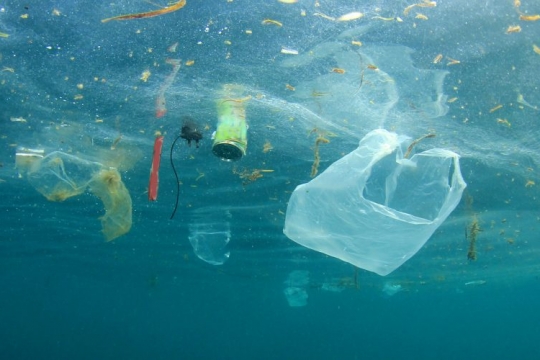In 2018, EfD will launch a new collaborative research program called Policy Instruments for Sustainable management of oceans and marine resources. The two focus areas of the program will be effective management of fisheries and combating marine pollution, the latter with a specific focus on plastic waste.
Oceans are essential to humans. Fish provide an important source of protein and fishing is directly and indirectly providing labor opportunities for a huge amount of people around the globe. At the same time, oceans and coastal waters provide important ecosystem services that are necessary for us.
Motivation of the program
“Today, we have reached such level of negative impact on the oceans, that a long misuse is beginning to strike back. Poor people are the most vulnerable when we deteriorate the quality of natural resources and this is indeed the case for marine depletion in various forms. That´s the motivation for this program. Hence, in my view it is logical and wise that Sida has decided to support it”, says Håkan Eggert, coordinator of EfD´s new marine program.
EfD has supported capacity building in environmental and resource economics around the world for over a decade. “We are now in a great position to make even better use of the capacity we have built, and the experience we have of working with global collaborative research programs” says Gunnar Köhlin, Director of EfD.
Focus on sustainable management and plastic bags
Fisheries management and marine pollution- with a focus on plastic debris, are two areas where EfD has a lot of previous research experience. For example, many EfD researchers contributed to a global study on Fishery Performance Indicators, which stresses the need to include all three areas of sustainable development namely: ecology, economics and social aspects, when evaluating fisheries. Another area where EfD has done previous work is on marine plastic pollution.
The research question is: What are the most suitable approaches to address this problem? Is a ban on plastic bags a good strategy? “ Some countries have already banned plastic bags. It will be interesting to investigate what effects these bans have had so far on marine plastic waste” says Eggert. A number of scientific methods will be combined in this program. Modern behavioral economics with tools such as nudging is likely to be useful, but also more traditional economic policy instruments like taxes and producer responsibility.
We need to reach the policy arena
Unfortunately there is a lot of knowledge within the research community that never reaches policy makers. “With this new marine program, we want to synthesize existing knowledge, both for academics in the form of review articles, but more importantly, in repeated interactions with policy makers in the countries concerned. EfD centers around the world have a tradition and the experience of organizing constructive meetings between scholars and policy makers both at national and regional levels. We will continue to work in this spirit” , says Eggert.
Recruitments for the new program
The Department of Economics, University of Gothenburg now offers a research position linked to the new program. Other EfD centers will also be recruiting post-doc researchers to get involved in the new marine program during 2018. Link to the Research position at University of Gothenburg
EfD´s new program: Policy Instruments for Sustainable management of oceans and marine resources will involve researchers from EfD centers in: Central America, Chile, China, Colombia, Kenya, India, South Africa, Sweden, Tanzania and Vietnam. The time-frame for the program is 2018-2021.

